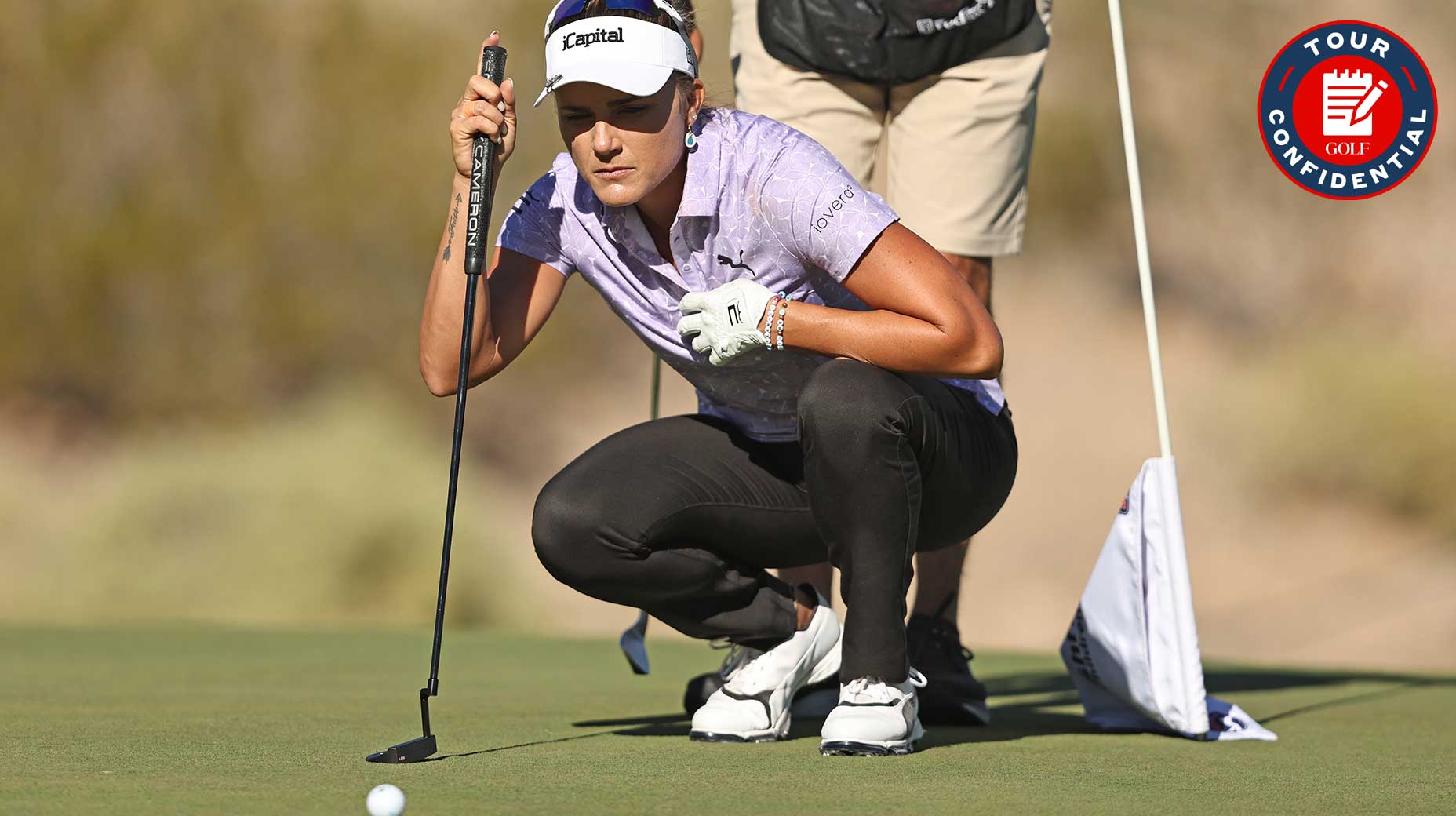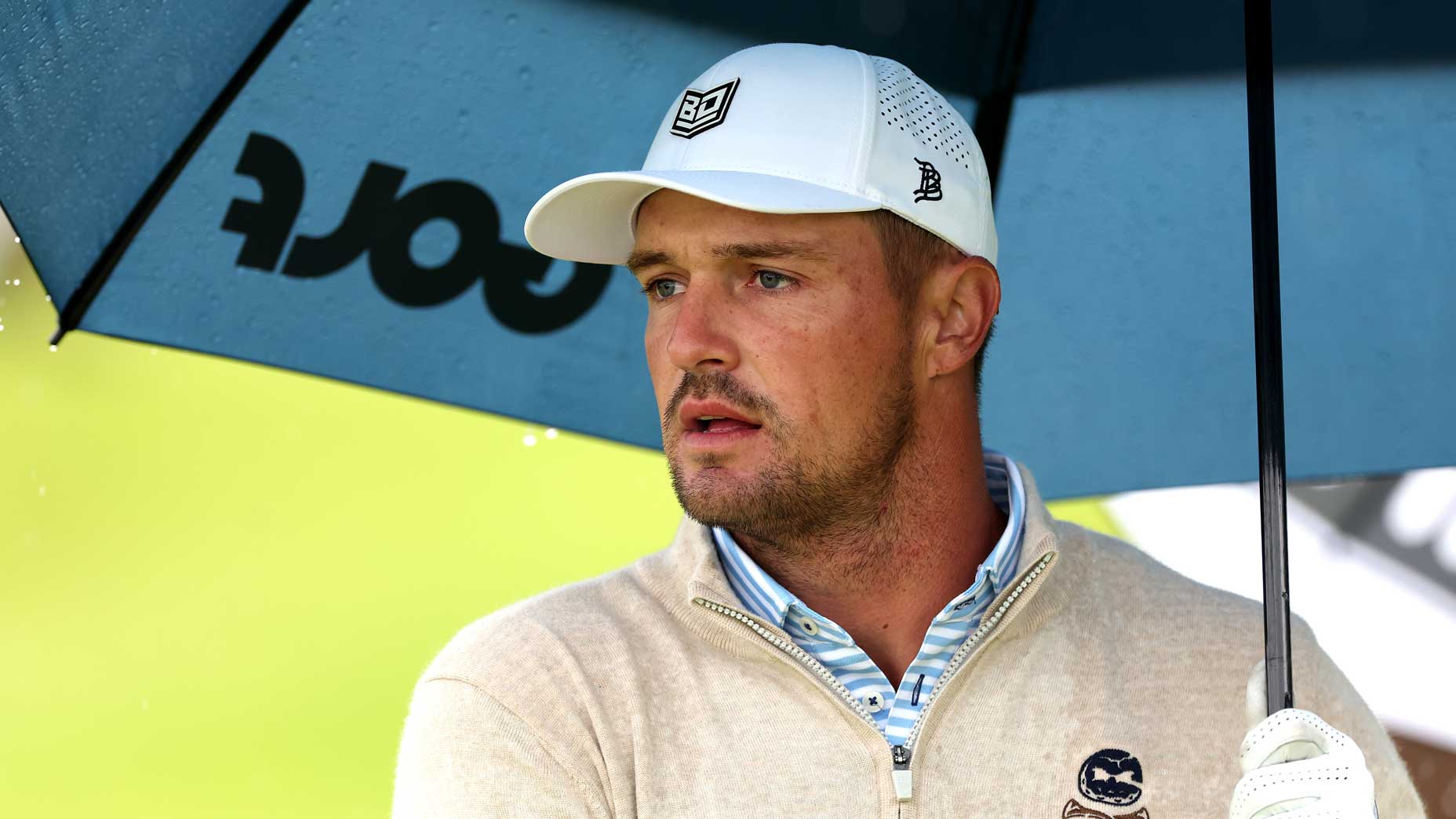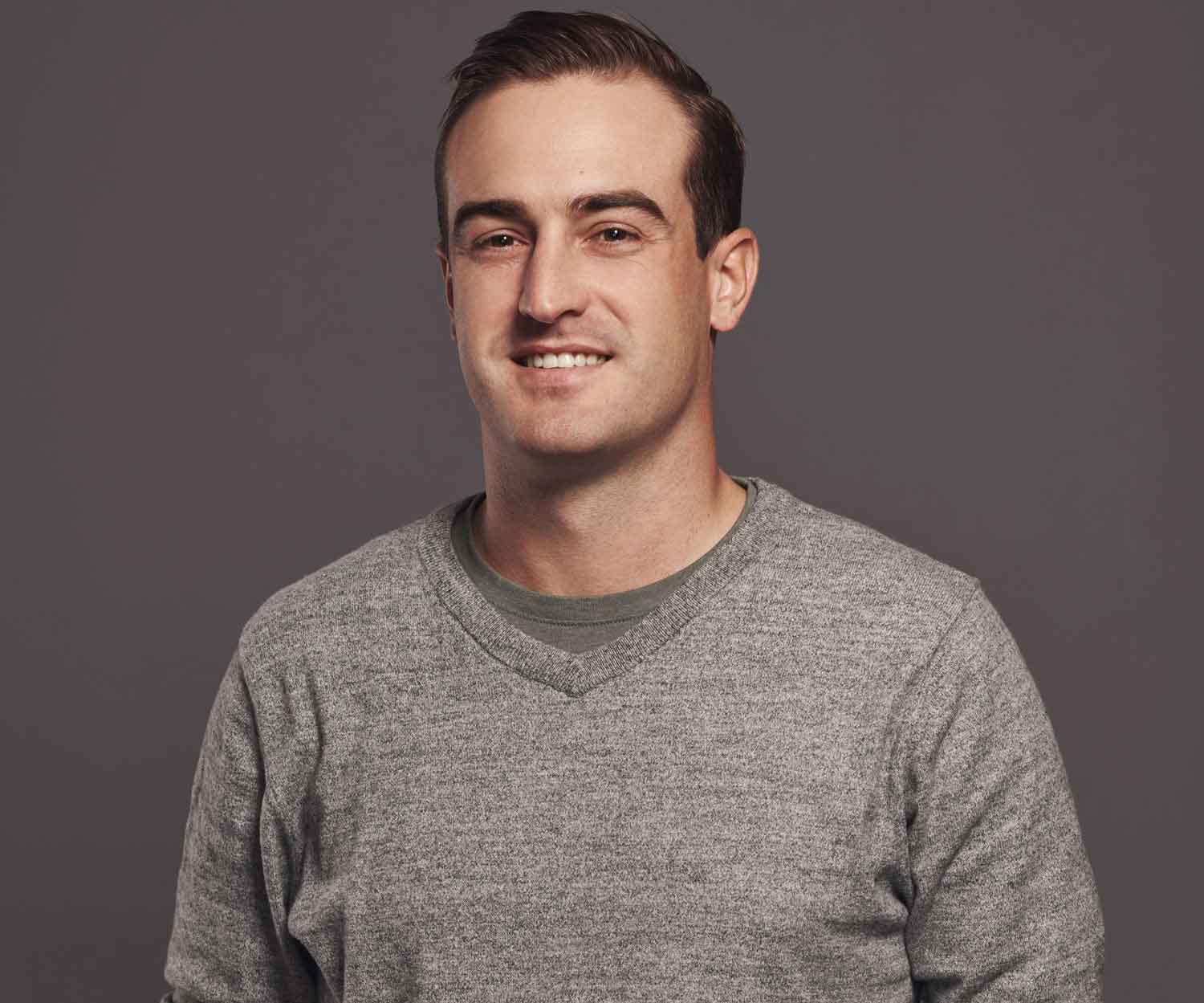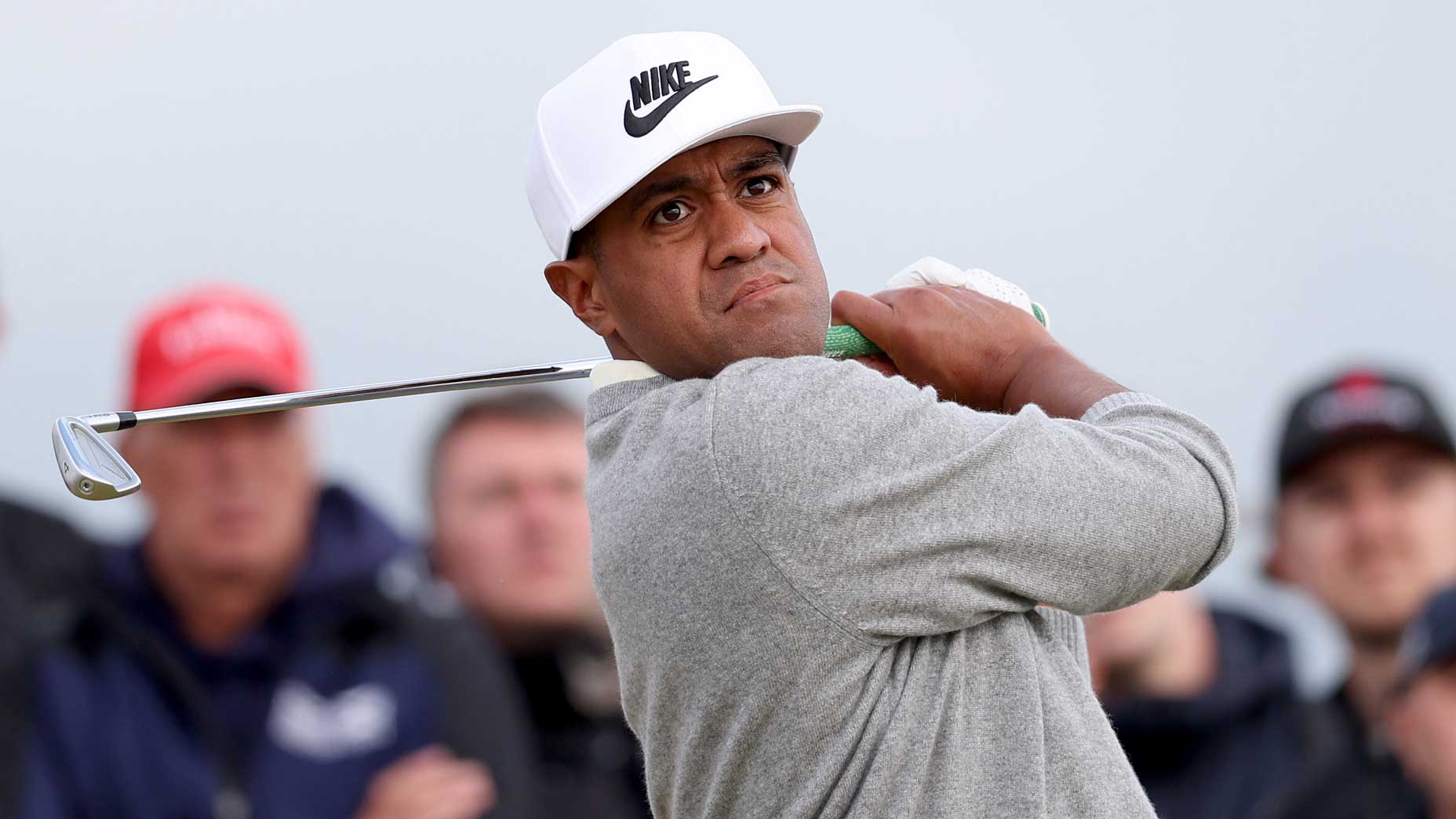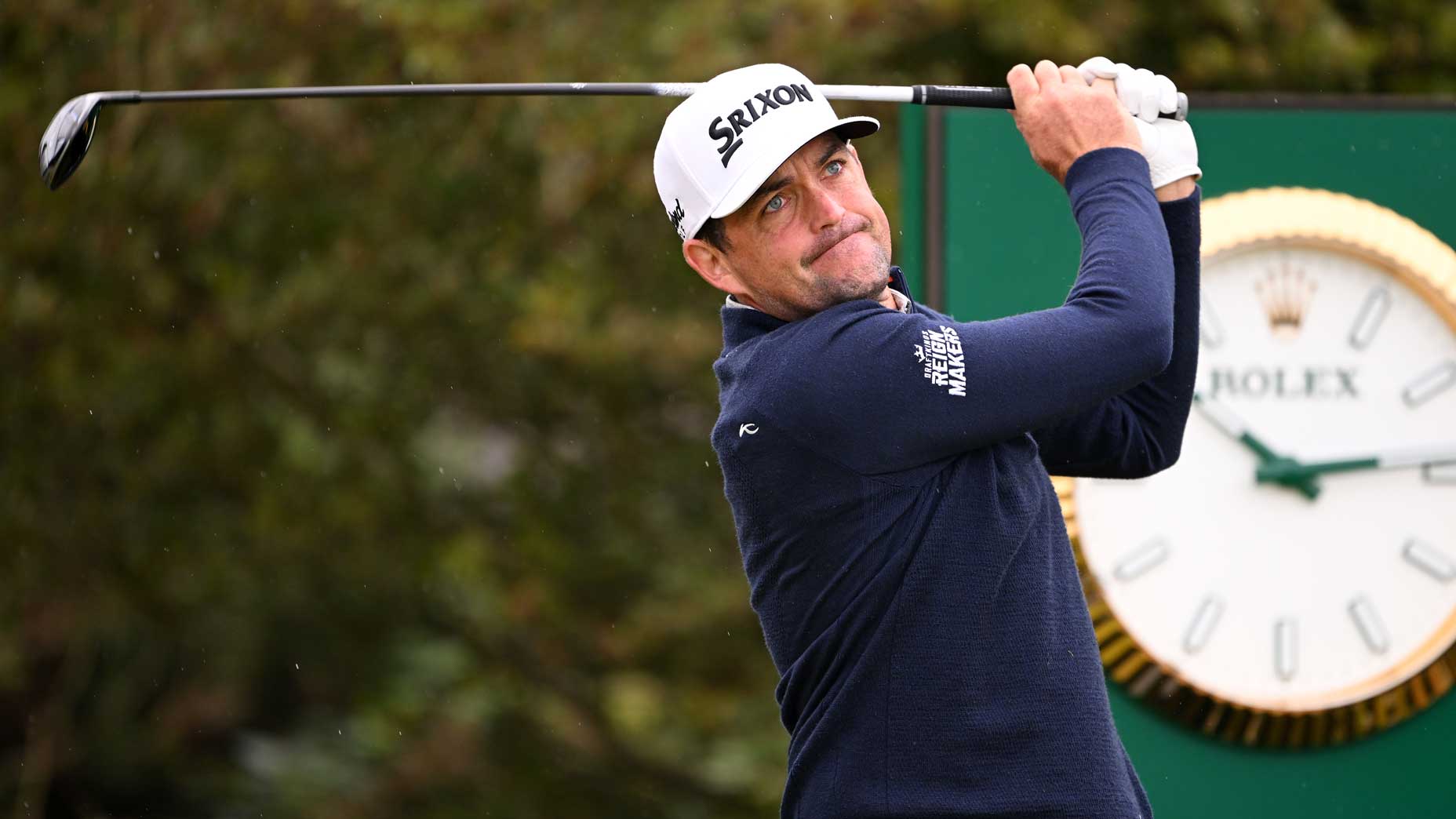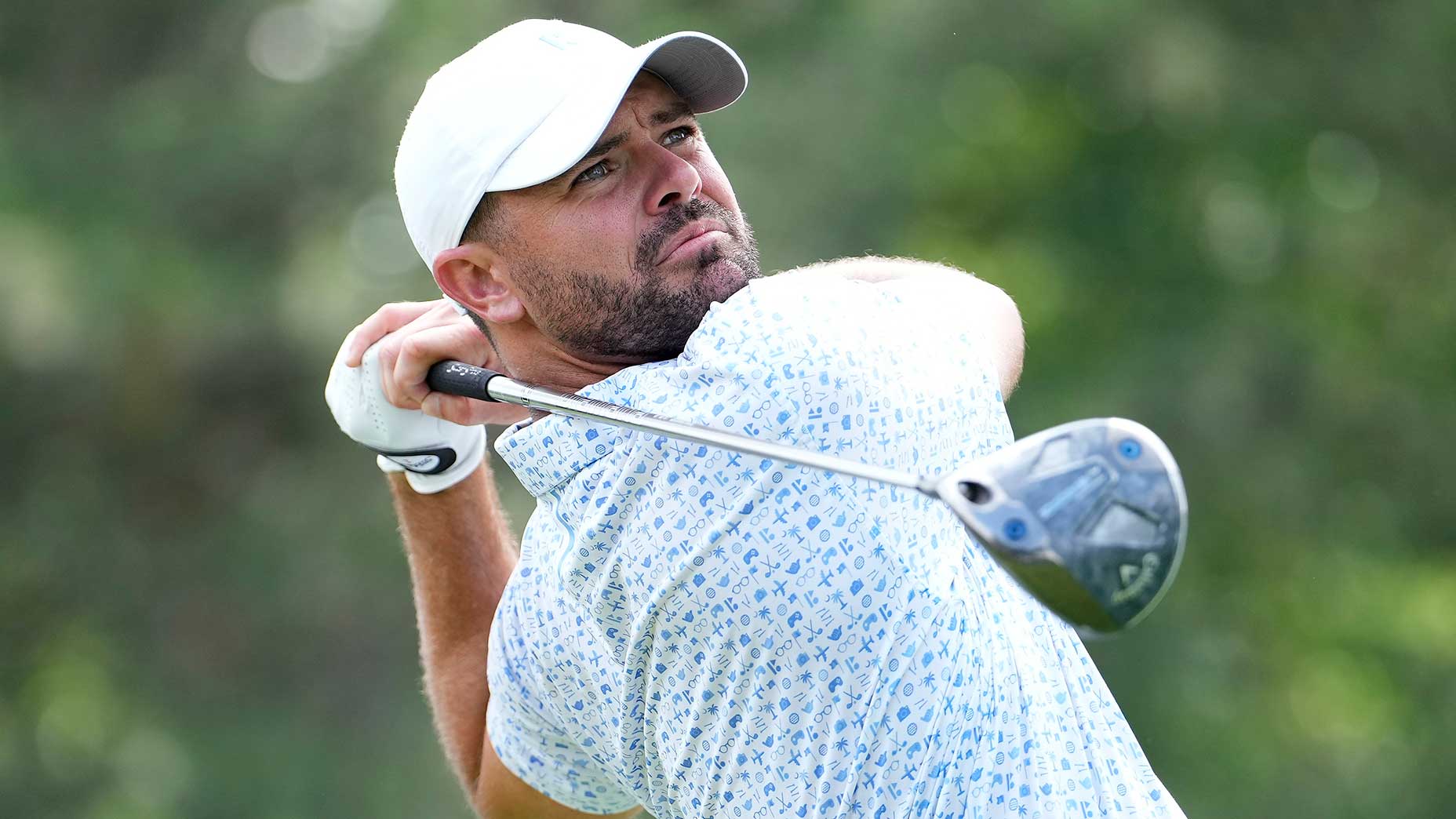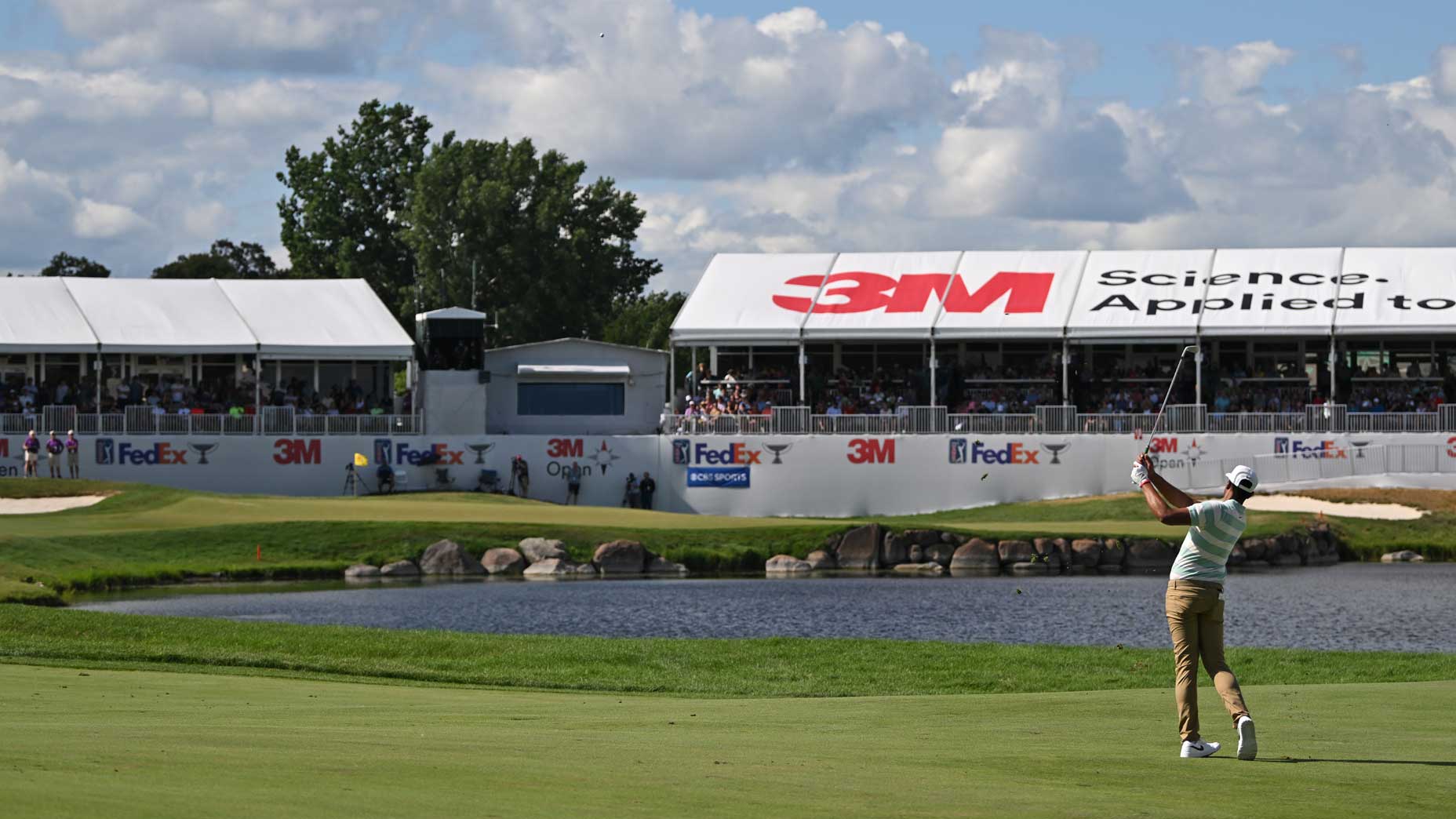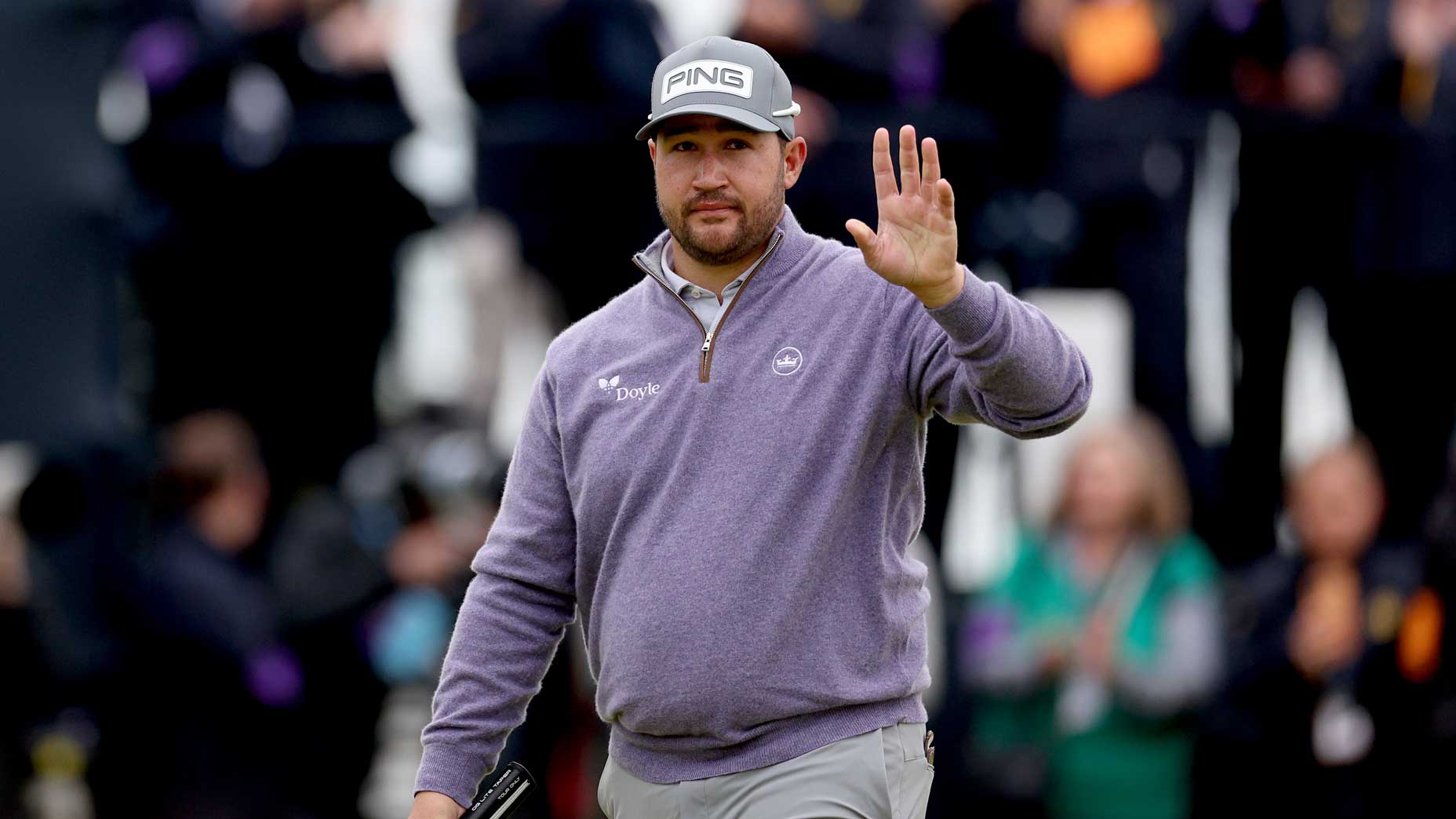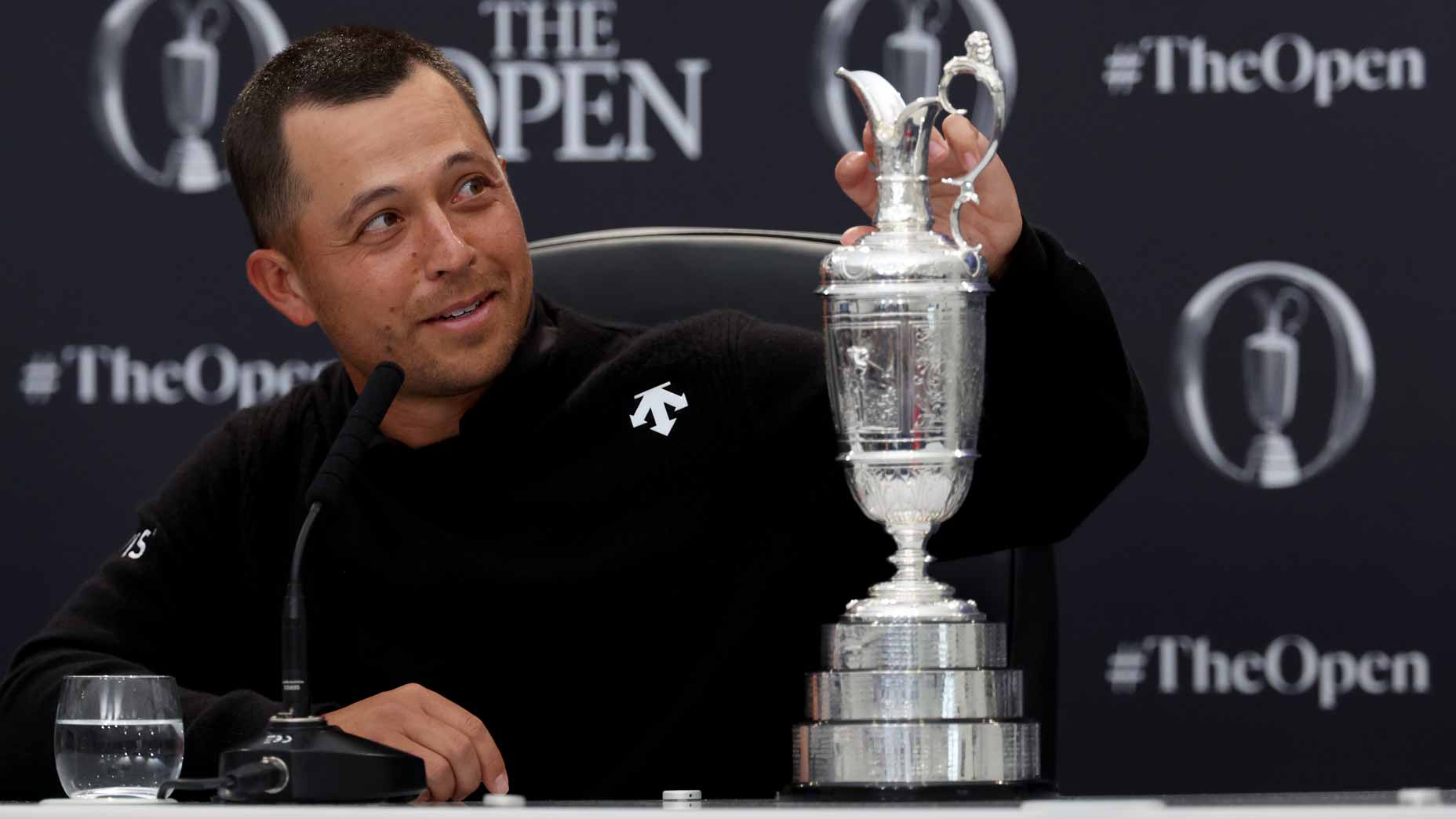The Saudis aren’t the only investors who want a piece of pro golf
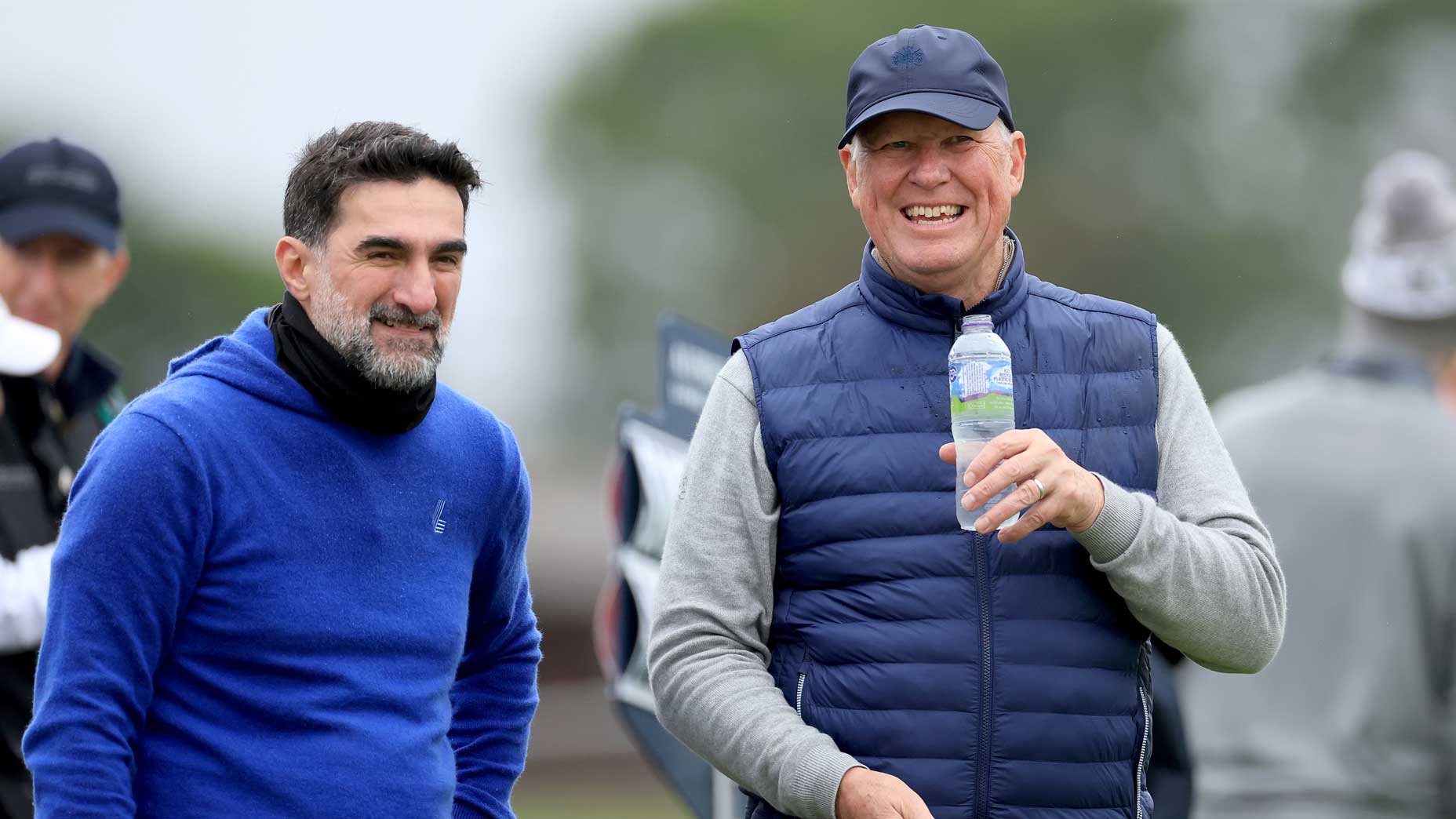
Yasir Al-Rumayyan, governor of the Saudi PIF, and Martin Slumbers, CEO of the R&A, at the Dunhill Links Championship.
Getty Images
It was the first round of the brave, new, confusing world on the PGA Tour. The Thursday afternoon tee times at the Canadian Open were out on the course while the morning wave was enjoying lunch. A handful of players and caddies sat outside in the June sun, chatting for most of an hour about what the future would look like.
Some in the group were comfy, their FedEx Cup standing already guaranteeing them access to the biggest events of 2024. Others were less content, annoyed that they had passed on a LIV offer, or perhaps even annoyed on behalf of someone else. Everyone was annoyed at Jay Monahan, it seemed. The PGA Tour commissioner didn’t have answers to all of their questions. And among the queries kicking around that afternoon was a simple one: How about player equity? Why aren’t we getting more out of what we’re were putting in? Then an intoxicating idea was suggested: What if finishing in the top 70 in the FedEx Cup earned you a stake in Tour revenues for the following season?
Viable or not, ideas were flying around that week at Oakdale Golf and Country Club, in Toronto, and you couldn’t blame the guys for it. Their world had been turned upside down. The PGA Tour had just struck a deal to make a deal with Saudi Arabia. Monahan and Co. were hopeful to reach a definitive agreement by which lawsuits would be dropped and the two warring sides could merge business interests in a new for-profit entity. Those last three words sent players’ minds racing. For-profit entity. For decades the Tour had been a non-profit, 501(c)6 organization, but Tour brass had surprisingly brokered a potential future with for-profit goals.
In the four months since the Canadian Open, then, it’s unsurprising that the Tour has received bids from various investment firms. That’s where we are now — private equity money is coming for the pro game, targeting the amorphous for-profit company known as PGA Tour Enterprises. Jason Gore, chief player officer, sent a memo to the Tour membership last week, outlining the outside interest in the Tour.
“We remain focused on reaching a Definitive Agreement with PIF and the DP World Tour,” the memo says, “but not surprisingly, these negotiations have resulted in unsolicited outreach and proposals from a number of other interested investors. All of this activity reinforces the Tour’s strong position and our potential for growth.”
That memo arrived right around the same time Ari Emanuel, CEO of Endeavor, a media and entertainment agency, revealed his company was among the bidders.
“I think it’s, like, seven other bidders,” Emanuel said during a Bloomberg Screentime conference Oct. 11. “We put in a bid for the — there’s a 501(c)3 non-profit and then they’ve created a profit investment opportunity for the PGA. We put in a bid, a week ago? Friday [Oct. 6].”
Emanuel’s response was less than smooth and forthcoming. But as he has discussed in various other ventures, Endeavor takes a “flywheel” approach to major investments like this proposal. That means it would hope to use its full catalog of businesses and talent — Endeavor is the product of a past merger of agencies William Morris and Endeavor Talent — to streamline its way to increased value, greater entertainment and more profit. See: Its success with UFC.
So, was this bid merely a play for a small piece of the new deal between the Saudi PIF and the PGA Tour…or was it something much more significant? Would that money work independently of the Tour’s negotiations with the Saudi PIF, or alongside it? The conference moderator sitting across from Emanuel couldn’t get much out of him. That’s probably the nature of many deals that reach into the billions of dollars. And ultimately, Endeavor’s interest in golf isn’t surprising. The company was considering entering the golf space in recent years, and was asked if it would want to bankroll a new tour. Ultimately, the investment was going to be worth $1 billion, Emanuel said on the Freakonomics podcast, but Endeavor pulled out at the behest of the PGA Tour.
Now, it seems, that money could be back in play. And Tour players themselves have to take it (or something like it) very seriously. Gore’s memo continued with, “We have a Policy Board Meeting on November 13 that will be dedicated to this important topic.”
This comes as Yasir Al-Rumayyan, the governor of the Saudi PIF, continues making inroads in the game. Al-Rumayyan played alongside R&A bigwigs Martin Slumbers and Peter Dawson two weeks ago at the Dunhill Links Championship. It also comes as LPGA commissioner Molly Marcoux Samaan told The Financial Times the league she represents was closing in on a deal with a “strategic planning partner” to enhance its product in the name of increasing investment. It also comes as groups like Fenway Sports or Arthur Blank’s AMB Sports and Entertainment have bought in to TMRW Sports, a new venture from Tiger Woods and Rory McIlroy that has a small army of A-list investors. We are only a few months away from 24 Tour players being considered part of different golf teams rather than strictly individuals, similar to what we see in other sports.
One way or another, the money in other sports is pivoting in golf’s direction. And it makes sense on paper, as private equity and venture capitalist deals in pro sports have never been more popular. There are minor investments worth hundreds of millions and entire takeovers that stretch to eye-popping numbers. Fenway Sports itself has been working through selling part of Liverpool FC, recently valued at $4 billion. Fenway Sports know as well as anyone that these investments almost always turn a profit. But how will golf’s investment actually look? Will it include player equity, like players discussed at the Canadian Open? We can look for signs from the man Tiger Woods has helped put in charge: Colin Neville of the Raine Group. Neville leads Raine’s sports division and has been an insider on many deals in pro sports lately, notably on the record-breaking sale of Chelsea FC, and another that could eventually break that record — the sale of Manchester United FC.
Neville was in the room in August 2022 when Woods and McIlroy convened 22 of the biggest Tour stars to hash out the future they wanted. Then, this year, during Monahan’s late-July return to the public eye, it was announced Neville would become a third-party special advisor to Tour players. He would have access to all aspects of the Tour’s negotiations with the Saudi PIF. At the insistence of 41 of the top players in the world, Neville was pushed forward and the Tour had to accept it.
A former lacrosse player at Yale, Neville and Raine led the funding efforts of Premier League Lacrosse. One of the tenets of that league? Player equity. Neville was also an original director for the Premier Golf League, whose idea for an upstart tour was commandeered by LIV Golf. One of the original facets of the PGL? Player equity. Fifty percent of league value would go to its voting members. We are a long way from those days, when the PGL seemed to be in control of its own future, but its directors haven’t completely gone away. Some went to LIV, others went to the DP World Tour and now Neville is working on behalf of the PGA Tour membership. He’s been notably silent since assuming that role, but has explained his outlook on sports investment in various conferences.
The surprising takeaway for Neville from the sale of Chelsea? Within one week of announcing intentions to sell, 250 entities reached out, saying they were interested. “The people that called … would shock people,” Neville said, underscoring the point that pro sports teams and leagues are an asset class worth pursuing.
The PGA Tour may not be quite at that level just yet, but it does have suitors. That’s a good thing.
The author welcomes your comments, concerns, and any other notes at sean.zak@golf.com.

